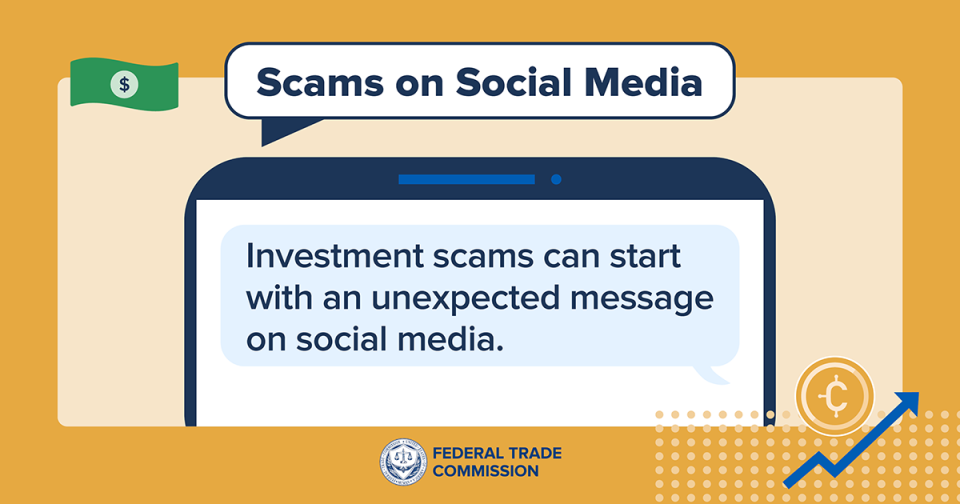With so many people on social media, it’s no surprise that scammers are there, too. A scammer might, for example, send you a message on Facebook, LinkedIn, or WhatsApp offering a chance to invest in cryptocurrency. But there’s no investment opportunity — just a scammer trying to take your money.
Here’s what happens next. If you reply, the scammer will say they’ve made lots of money investing in Bitcoin or another cryptocurrency. And they can get you a special opportunity that guarantees big returns with little or no risk. But these are all lies designed to convince you and get your money.
But let’s say you decide to invest. The scammer will then send you a link to a site or app where you can “invest” and see your account “grow.” The investment website they steer you to will look real, but it’s really fake, and so are their promises. And once the scammer’s gotten as much as they think they can get from you, they’ll shut down your “account” and vanish, leaving you with nothing.
If you get an unexpected message on social media about an investment opportunity, don’t reply. It’s a scam. Know this:
- Unexpected messages on social media about investment opportunities almost always lead to scams. Don’t reply. Scammers like social media because they can be anonymous or pretend to be someone they’re not.
- All investments have risks. Don’t believe anyone who says you can earn a lot of money on an investment with little or no risk. Investments always involve risk — there are no guaranteed returns.
- The U.S. Securities and Exchange Commission (SEC) has advice on investing and avoiding fraud. Visit Investor.gov for more.
Report investment scams and fraud to the FTC at ReportFraud.ftc.gov and to the SEC at sec.gov/tcr.


Why isn't their restrictions on Servers to have a phone number that works and abuse email that they do something about clients who are spamming emails.
I get over 50 emails a day and most are from Amazon users now or Google. Neither do anything; also there are ways to report in a format for others and they do not even work I tried for 40 mins. to report one and used to have Twitter to exposed them. It should be mandatory to have a phone number not only works on abuse line and a person answering in during business hours to actually do something.
Also that if you donate or purchase from a company they cannot sell, give way, leak consumer's emails as a requirement to purchase or donating. It should be an option.
Thank you FTC for sending out these relevant, informative scam alerts directly to the public - an outstanding initiative & program.
In reply to Thank you FTC for sending… by Lou Bornstein
Ditto-- this is probably one of the "government intrusions" that some parties would like to get rid of...
A variation of this scam is when the opportunity to invest comes from a known friend's account.
The friend's account has been hacked, and the spammer posts as the person indicating that they are newly graduated from a course on crypto investing and showing people who have made considerable profit on their investments. A reverse search on the photos easily finds variations of the same photo (and text) on other profiles.
Those scammers keeping send me, my Netflix Acc. Sirius Acc. and many things more; to try to get me. I send that email to SPAN. I never open. When they call me, saying they are from the Social Security or IRS I hang up. Because I know they are Scammers.
All Companys, Banks, Credit Cards SSA, IRS, say to Customers. We never call you, if you have any problems; you call us.
Also, they Scammers on tools, or any products; offer low-cost stuffs. But is not trues.